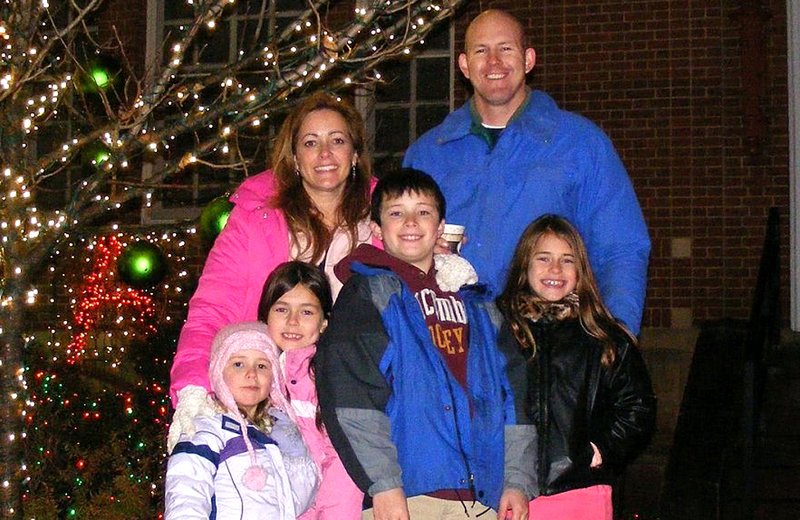WASHINGTON — This much is clear: U.S. Army National Guard Capt. Samson Luke died at home in his sleep on Jan. 10, 2010. Whether he passed away as a soldier or as a civilian is at the heart of a dispute between a grieving wife and the U.S. military.
The Army maintains that since Luke died at his Sebastian County home, his family should be denied death benefits that are provided for survivors upon a soldier’s death during active duty or training. Miranda Luke says her husband was still on duty and had gone home for the night with the permission of the National Guard.
Sen. Mark Pryor, a Democrat from Arkansas, took Luke’s case to the Senate floor Tuesday and introduced an amendment to a broad defense bill that would allow death benefits for soldiers who die while on duty “in the vicinity” of their bases.
Pryor’s amendment would be retroactive and apply to Luke, allowing Luke’s family to collect a $100,000 death benefit and a funeral stipend.
When Luke died of heart problems, he was on weekend training duty at Fort Chaffee. He had spent Saturday in a freezing warehouse working with his unit, part of the U.S. Army National Guard’s 142nd Field Artillery Regiment.
“Sam didn’t tell his guys to do something, and then just watch them,” Miranda Luke said.
That night, after laboring in the cold all day, Sam returned home to his wife and four children in Greenwood. Cold and exhausted, he went directly to bed and never woke up. He was 34.
Miranda Luke said her husband returned home because he lived within 15 minutes of the base, and staying with his family rather than at a hotel like many of the other men in his unit, saved taxpayers money.
On the Senate floor Tuesday, Pryor introduced his amendment while standing in front of a photograph of Samson Luke, who was posing in full battle fatigues and helmet with his wife and his four children, who are now ages 6, 8, 11 and 12.
Pryor said his efforts to resolve the matter with the Defense Department had been unsuccessful.
“The bean counters over at the Pentagon have really tried to save a little money at his family’s expense,” Pryor said. “This is a classic case of getting pencil-whipped by the government.”
Miranda and Samson Luke met at college in California, where he was a basketball player on the University of San Diego team.
At 6-foot-5, he was a tall man, but his teammates towered above him.
“He always said he was the slow short guy on the team,” his wife said.
After school, he enlisted in the Army and, after two years, enrolled in Officer Candidate School.
He served two tours in Iraq as a member of the Army’s 316th Field Artillery unit and earned a Bronze Star for his exemplary service.
“He never felt more comfortable than when he was leading men in Iraq,” Miranda Luke said. “His men loved him.”
After leaving active duty, the couple moved to Arkansas to be closer to Fort Chaffee, where Sam Luke was a commander.
Miranda said that after her husband died, the Army assigned her a casualty assistance officer. But when the time came to pay for his funeral, the Army was nowhere to be seen.
She said she had coordinated a letter-writing campaign to President Barack Obama and former Defense Secretary Robert Gates but hasn’t heard a thing back.
The Army Casualty and Mortuary Affairs Operations Center did not return two calls from the Arkansas Democrat-Gazette on Tuesday.
Lt. Col. Keith Moore, a spokesman for the Arkansas National Guard, said he hoped that lawmakers could more clearly define Army regulations on death benefits.
“The language is a bit ambiguous,” he said.
Army regulations state that soldiers are eligible for benefits if they die “between successive periods of inactive-duty training, at or in the vicinity of the site of the inactive-duty training, if the site is outside reasonable commuting distance from the member’s residence.”
Pryor’s amendment would add the following language, conferring benefits in the case of a death that happens “while staying at the Reserve’s residence, when so authorized by proper authority, during the period of such inactive duty training or between successive days of training.”
Pryor said the Congressional Budget Office had not calculated how much the measure would cost but that the number of families in the Lukes’ position was “very tiny.”
He said providing benefits in such cases would most likely cost taxpayers less than $1 million over 10 years.
“This is budget dust,” he said.
Lisa Ackerman, a spokesman for Pryor, said that while it is possible that the amendment will be noncontroversial, the fact that it has a cost associated with it could raise objections. The broader bill, which would authorize programs throughout the Pentagon, could get a final vote by the end of the week.
Sen. John Boozman, an Arkansas Republican, said through a spokesman that he supports the amendment, calling it a “common-sense approach.”
Boozman’s spokesman, Patrick Creamer, said he didn’t know of any members who had specific problems with the amendment, but the fact that it is retroactive “could make it a sticking point for some senators.”
Miranda Luke was hesitant to discuss the matter. She said she doesn’t want to be seen as anti-military.
For her entire adult life, she and her husband were tightly embraced by the service.
“Our kids were Army kids,” she said. “We were a military family.”
After she learned that she was not going to receive the death benefits, she says, “they just detached themselves.”
She said working for the service during training-duty weekends wasn’t like clocking in and out at a factory. If he had committed a crime during that time, she said, he could have been prosecuted under military law.
“He was on Army time,” she said.
Front Section, Pages 1 on 11/30/2011
